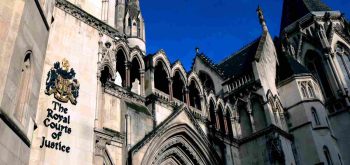Journalists were regularly being prevented from attending court hearings, according to research into possession proceedings where tenants and homeowners can risk losing their homes. For a two-month period over the summer, the Bureau of Investigative Journalism (TBIJ) arranged for more than 20 journalists to monitor 683 possession hearings on 110 occasions in 30 courts across England and Wales. On seven occasions reporters were barred from entering court and one six occasions journalists were incorrectly told that proceedings were always held in private.
Civil court procedures were revisited and supposedly clarified in 2019 to highlight the default position that possession hearings be made public. That duty can only be overridden in narrow circumstances where, for example, a case involved confidential information. However the new research suggests some courts have interpreted this to mean that all hearings including details of rent and mortgage arrears should be private.
‘When reporters were allowed into court, lawyers for mortgage lenders regularly objected to their presence and attempted to have details of cases blocked from publication,’ TBIJ reported. The Bureau reported that the main trade association for the financial services industry, UK Finance, had written to senior officials in the judiciary saying media attention on possessions ’causes nervousness amongst mortgage lenders given the reputational risks’. The TBIJ also reported that the group wrote to the research’s funder, the Legal Education Foundation.
As a result of the TBIJ research, the Master of the Rolls Sir Geoffrey Vos has now written to every judge in England and Wales reminding them that the public and press must be able to freely access all public court hearings. ‘The general position that hearings are public remains applicable in possession hearings,’ the office of the Master of the Rolls told the Bureau.
In one instance, a judge at a London court refused to allow a reporter in without ‘a signed and sealed letter’ from the top regional judge. Another reporter was also blocked from attending a possession hearing due to ‘Covid-19 precautions’, on the basis that the room was not suitable for three people other than a judge. In this scenario, the rule would have been breached if both landlord and tenant had turned up with legal representation.
The Bureau reported that lawyers for lenders in just under one fifth of the mortgage hearings logged during the investigation had raised objections to journalists being in the room. Most objections came from lawyers representing Bank of Scotland – 12 in all.







Freedom of the Press